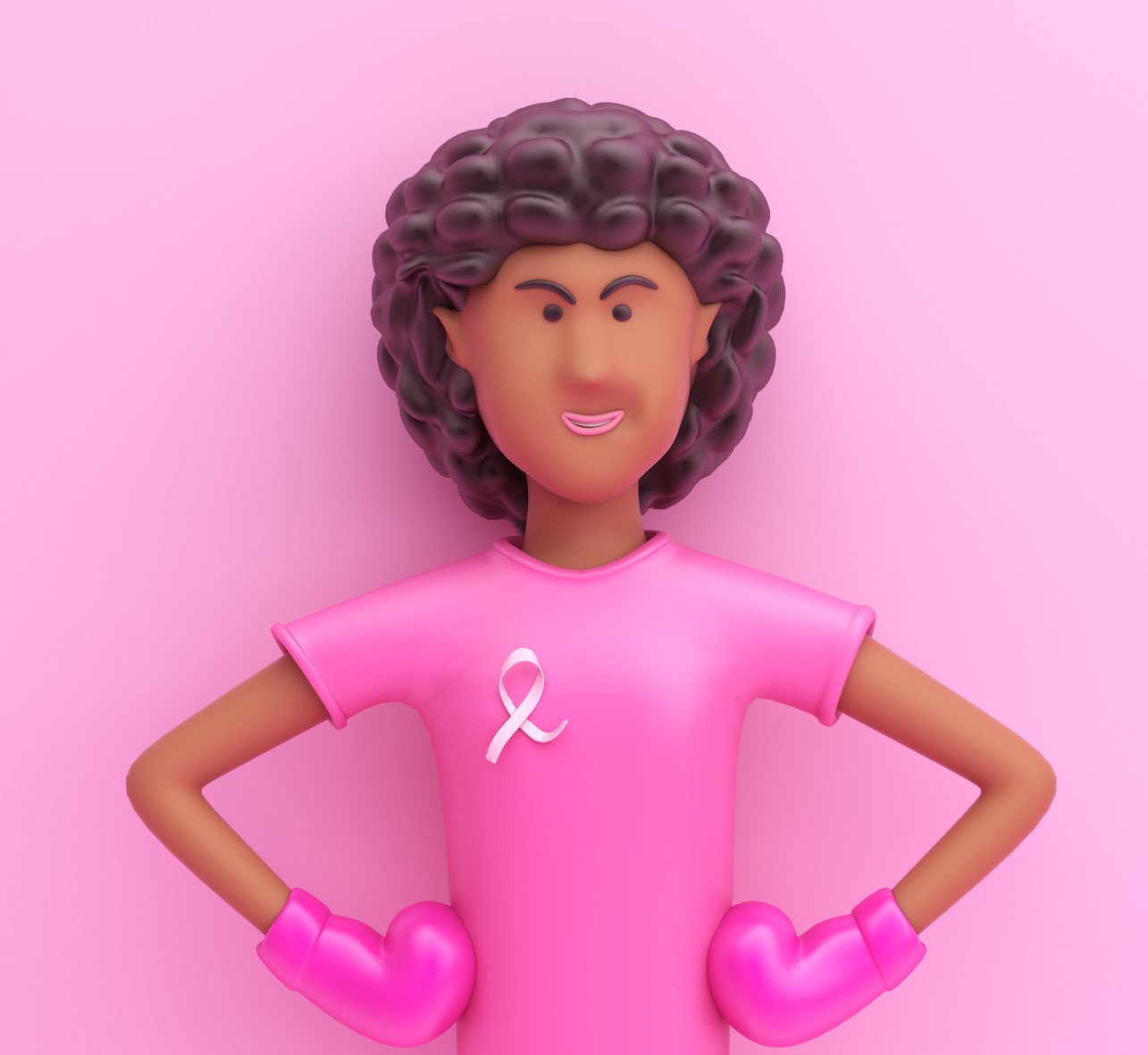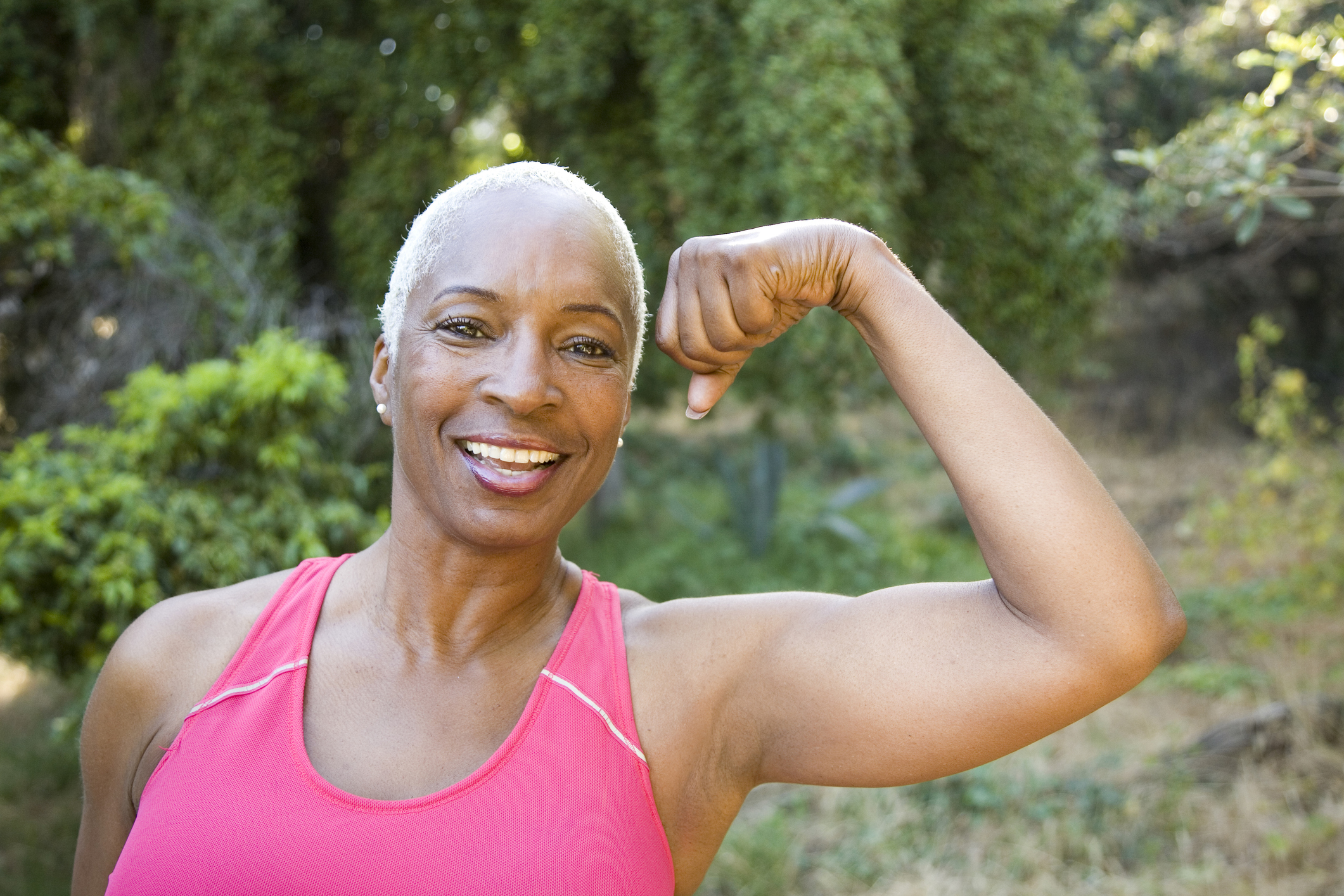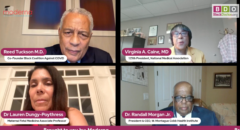
You’ve talked to your doctor and decided that vaccination is the right choice for you. They’ve advised you on how and when you should get vaccinated. Now what?
Black breast cancer patients have unique concerns when it comes to the COVID-19 vaccine. You’re not a stranger to shots that really, really hurt. You know firsthand how side effects are more than just a footnote on a medication slip—from the chemo nausea that keeps you from being able to cook or eat to hair loss and surgery scars that can destabilize your physical identity. Not to mention the fact that you are rightly skeptical of a medical system with a documented history of systemic racism.
These concerns can’t be wished away or dismissed. But some breasties have found comfort in understanding what will actually happen inside their bodies when they receive the vaccine.
Both the Moderna and Pfizer COVID-19 vaccines are mRNA based vaccines. Dr. Monique Gary, a leading black breast surgeon, equates the mRNA vaccine to a sewing pattern. The first injection gives you the pattern. “You make it. You cut the cloth, you sew it.” Once it’s complete, your body knows what that pattern looks like all sewn together. When your body sees the pattern again (in the COVID virus), it can recognize it and get rid of it.
The newly authorized Johnson & Johnson vaccine delivers the sewing pattern a little differently.
It’s a viral vector vaccine, which means that scientists took the COVID-19 sewing pattern and put it into a weakened, harmless virus (adenovirus). The adenovirus that carries the pattern can’t replicate or spread inside your body, which means that it can’t make you sick. Once injected, the harmless virus delivers the sewing pattern to some of your cells. These cells cut the cloth and sew the pattern. Your immune system learns to recognize the completed pattern and mount a response in defense.
All of the vaccines have the same goal: to teach your immune system to recognize and attack the COVID-19 pattern.
Normal Symptoms to Expect
Some minor side effects are normal, especially after the second shot. By the second shot, your immune system easily recognizes the pattern and fights it off more aggressively. It’s never a bad thing to have a more robust response with the second shot, it just means that your immune system is prepared and ready to fight.
If you’ve already had COVID-19, you may experience these minor side effects after the first shot because your immune system is already familiar with the virus (Mount Sinai, University of Maryland).
Outside of a sore arm, you may experience a flu-like response that could include: fatigue, headache, sore muscles and aches, chills, or a low-grade fever. You should rest, drink fluids, and take over-the-counter anti-inflammatories. These side effects should go away in 24-36 hours. If they stick around longer than that, reach out to a doctor. Based on all the doses given, the CDC has reported that only 0.0011% of individuals who received the vaccine have had a severe allergic reaction.
Hopefully, your doctor has already talked to you about one side effect that can be particularly upsetting for women with breast cancer. When your immune system goes into high gear after the second shot, it can cause inflammation in nearby lymph nodes (especially those in your armpit and neck on the side of vaccination). Enlarged, swollen lymph nodes can be mistaken for cancer, which can be scary. It’s important to let the immune response pass and the inflammation go away before jumping to conclusions. For this reason, the Society of Breast Imaging has recommended that women who get vaccinated wait 4-6 weeks for their mammograms and breast screenings.
Make a Vaccine Safety Plan
With these side effects in mind, it’s best to be prepared. As you plan ahead, think about what worked best for you in your chemo recovery routine. Here are some things to consider when making your vaccine safety plan:
- Make sure that you feel as good as you can before you go. In the days leading up to the shot, boost your immune system with Vitamin C and D3 (follow the appropriate dose instructions on the label). Get plenty of sleep the night before, don’t forget to eat breakfast, and hydrate throughout the day. (A reminder that you shouldn’t get the vaccine if you’re feeling sick beforehand!)
- Gather the things that make you feel better when you aren’t feeling well: washcloths, your favorite pillow, a cozy warm blanket, a heating pad or a fan, lots of fluids like Gatorade or juice, a big pot of soup, or a gallon of ice cream, over-the-counter anti-inflammatories, a tv show you love to binge...
- Bring someone with you who knows your health history. If you can’t take anyone along, let someone know that you’re getting the shot so that they can check in on you.
- Stay for the after-injection monitoring (about 15 minutes) and don’t leave until you feel comfortable. If that means you want to sit there for 45 minutes just to be safe, do it.
- Rest and recuperate!

What happens once you’ve gotten the vaccine?
The vaccines are 72%-95% effective in the United States, which means that although they greatly reduce your risk, there’s still a slim chance you could catch COVID-19 (FDA). That being said, the vaccines are also 85%-100% effective in preventing serious illness. So even if you do get sick, it’s unlikely that you’ll be hospitalized.
If you receive the Pfizer or Moderna vaccine, you will reach 95% immunity about a week after the second dose (4 to 5 weeks after your first shot). The Johnson & Johnson vaccine works a bit faster—you should reach 72% immunity just 28 days after the shot. Likely, the J&J vaccine won’t be readily available until April.
While there’s no way for the vaccine to give you COVID-19, you could still get infected after the shot and not show any symptoms. As an asymptomatic carrier, there is the possibility that you could spread COVID-19 to someone else without knowing it. So while we wait for more data, continue to be safe. Wash your hands frequently, wear a mask, socially distance, and avoid large gatherings. You should feel safer once you’ve gotten the vaccine, but let’s make sure we keep everyone else safe too.
If you’re feeling scared or nervous about the vaccine, you’re not alone. If you have questions, reach out to us at [email protected] or 443-758-1924. We are always here for you.
For more information, watch our episode on The Doctor Is In here: https://www.facebook.com/87057506193/videos/2444433455686586









